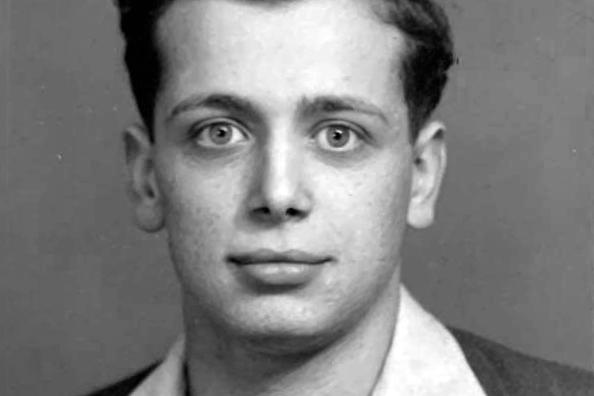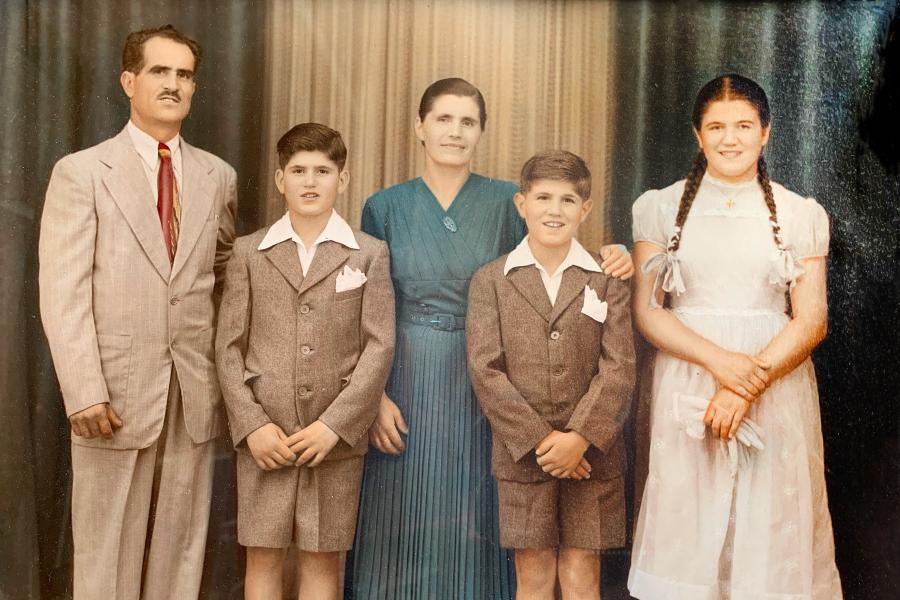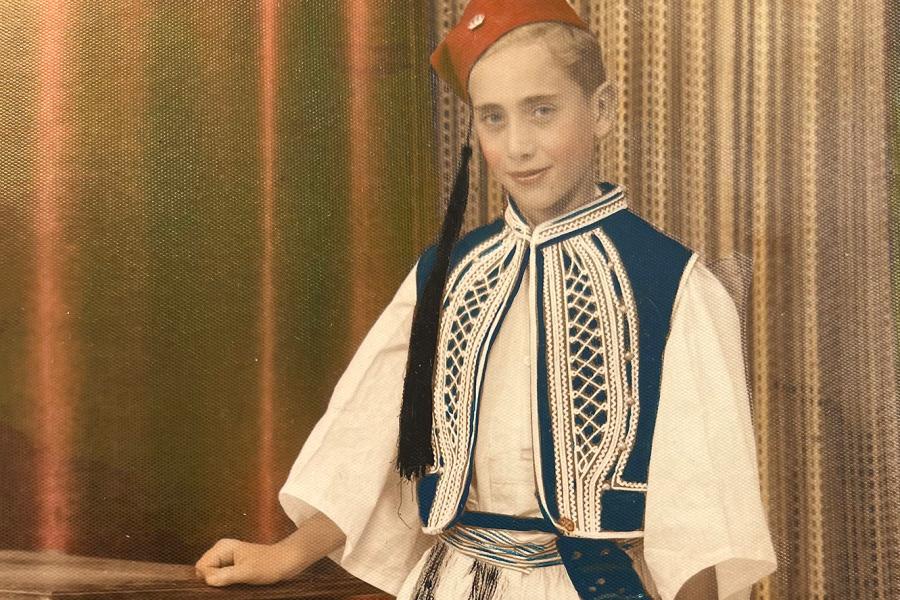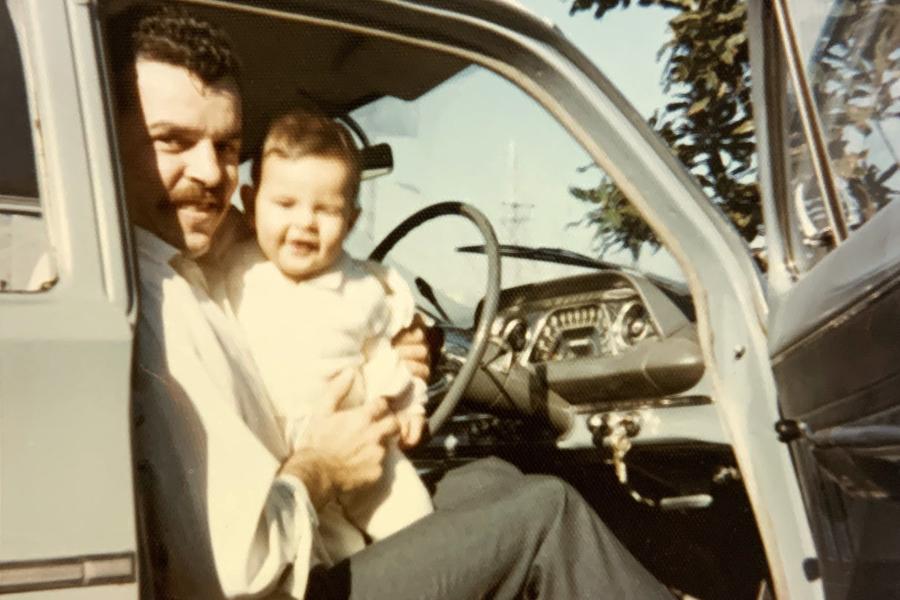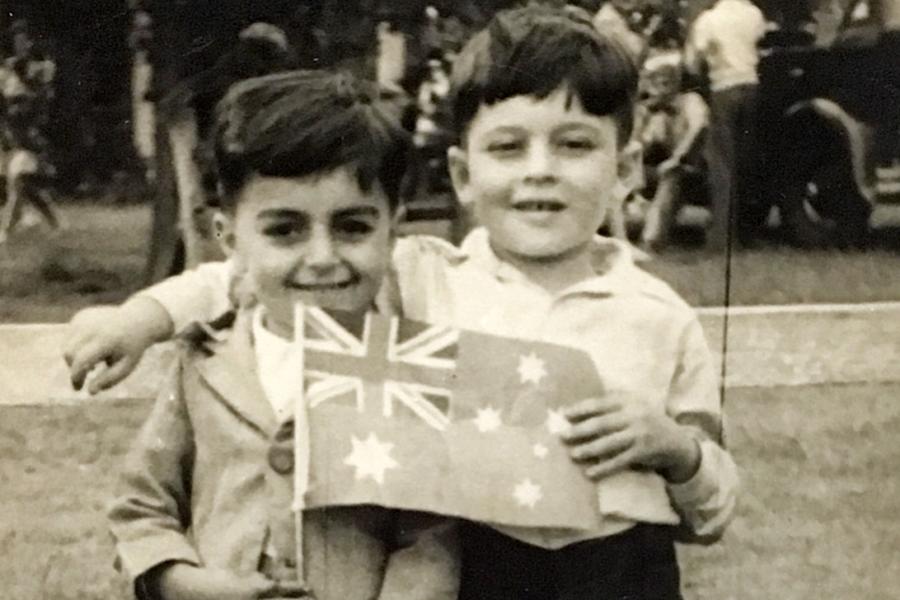

Speaker background
Afroditi Kalotheos was born on the Ionian Island of Lefkada in 1949. The youngest of three daughters, she was the only one in the family to complete her schooling before migrating to Sydney in 1970. Afroditi was sponsored by her middle sister who had emigrated a few years earlier due to economic hardship. Within a year, Afroditi was married by ‘proxenio’ (marriage by matchmaking) and had her first child soon after. She eventually achieved her lifelong dream of becoming a schoolteacher, teaching Greek and scripture. She also became a chanter in the Greek Orthodox church, a traditionally male-only role.
Interview summary
Afroditi describes her early years in Lefkada and her love of learning at school. She recalls the economic circumstances that prevented her from pursuing her dream of becoming a teacher and which spurred her migration. She describes meeting her husband in Sydney through ‘proxenio,’ and the many happy years they spent together. Afroditi also recounts the joy of achieving her dream of becoming a teacher and the challenges of serving as an Orthodox church chanter.
Interview highlights
highlight
Afroditi pays homage to her parents who, despite their reservations, supported her decision to migrate to Australia in search of a better life.
Afroditi: Naturally, they didn’t like it, but they said that their children will live better lives than they did, ‘To make a life that we couldn’t live.’ This was the only thing that gave them courage and bravery. One time we brought our parents here. My sister had three children. The youngest two were babies. My parents took the two youngest, so my sister could go to work. For the money, of course. They looked after them for two to three years and then they returned them back here again.
Interviewer: The children were in Greece for two years?
Afroditi: Yes, yes.
Interviewer: How old were the children?
Afroditi: They weren’t two years old; the younger one wasn’t walking. What I can say is that my mother was something else. All mothers do a lot of things for their family. She was very strong. You know in an airport for a grandmother to hold one child and a grandfather to hold another. Everyone helped them on their journey—on the plane, at the airport, to please them to help them. It was something very emotional.
Timecode 12:21 - 13:36
highlight
Afroditi was invited by her parish priest at St Gerasimos Orthodox church in Leichhardt to become a chanter. Here, she describes the reaction she received from the congregation as a female chanter.
Afroditi: The women were happy. The men, naturally, […] weren’t so, you know. They weren’t feeling so comfortable for a woman to be amongst them. But the priest told them, ‘I put this lady there and she will stay there, and I don’t want any complaints from anyone.’ So that’s what happened. But later, they started wanting me more because they had extra help. From that perspective, so their minds wouldn’t go where they weren’t permitted. I was embarrassed that I hid a little in the chanting area. I felt somewhat inferior. But later, slowly, slowly, I said, ‘My God, to be embarrassed doing this for you. You gave me everything.’ My mind started looking at things differently. I didn’t go there by myself. Obviously, I wouldn’t go there myself. Given that the priest put me there, I will go to the classes, and I must learn.
Timecode 01:06:30 - 01:07:34
